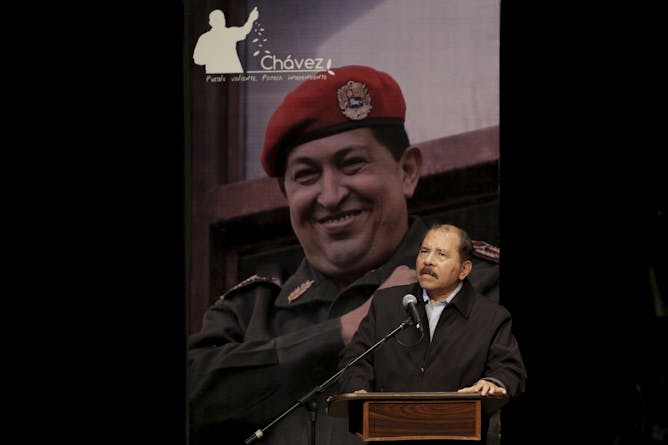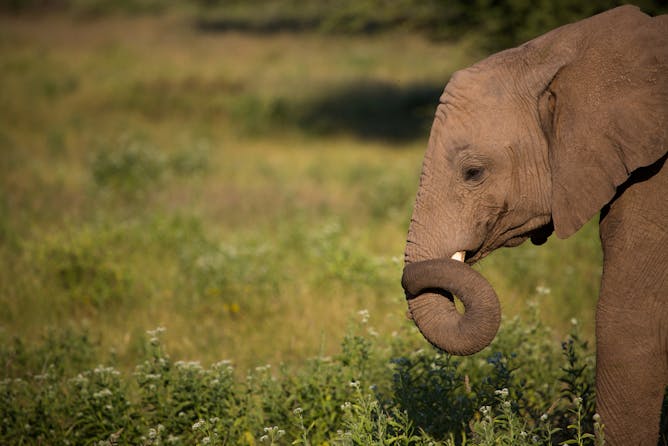|
When Nicaraguan president Daniel Ortega was reelected to run the country in 2007, his ally Hugo Chávez began supporting his regime with shipments of cheap Venezuelan crude oil. Profits from oil sales boosted Nicaragua’s economy and helped Ortega fund ambitious anti-poverty initiatives that made his government wildly popular. But when Venezuela’s economy started to collapse in 2015, oil aid dried up. So did support for Ortega’s regime. Benjamin Waddell, who recently fled Nicaragua, follows the oil money behind Ortega’s rise and dizzying fall.
Elephants are notorious for destroying crops in their search for food. Some of these crops are crucial to people’s livelihoods. But in one region in Tanzania, researchers are exploring the use of beehives to deter elephants. Katarzyna Nowak explains how this is working, and keeping elephants safe in the process.
|

Venezuelan president Hugo Chavez was a major financier of Nicaragua’s Daniel Ortega, seen here at a 2016 commemoration on the third anniversary of the socialist leader’s death.
Reuters/Marco Bello
Benjamin Waddell, Fort Lewis College
Cheap Venezuelan oil boosted Nicaragua's economy and funded President Daniel Ortega's many anti-poverty programs. With Venezuela in crisis, the oil has dried up – as has support for Ortega's regime.
|

Beehive fences can help improve human-elephant coexistence.
Shutterstock
Katarzyna Nowak, University of the Free State
There is indeed merit to using beehives to keep elephants from eating and destroying crops.
|
Business + Economy
|
-
Can Erbil, Boston College; Umit Ozlale, Özyeğin University
US sanctions announced earlier this month may have triggered the plunge in the lira, but the government has been mismanaging Turkey's economy for years, creating severe vulnerabilities.
|
|
Politics + Society
|
-
Abdul-Jalilu Ateku, University of Nottingham
Kofi Annan's tenure began after the reintroduction of two important international security lexicons -- peacebuilding and human security.
|
|
Health + Medicine
|
-
Blair H. Smith, University of Dundee
The US opioid epidemic killed more than 40,000 people in 2016 – now, other countries are at risk.
|
|